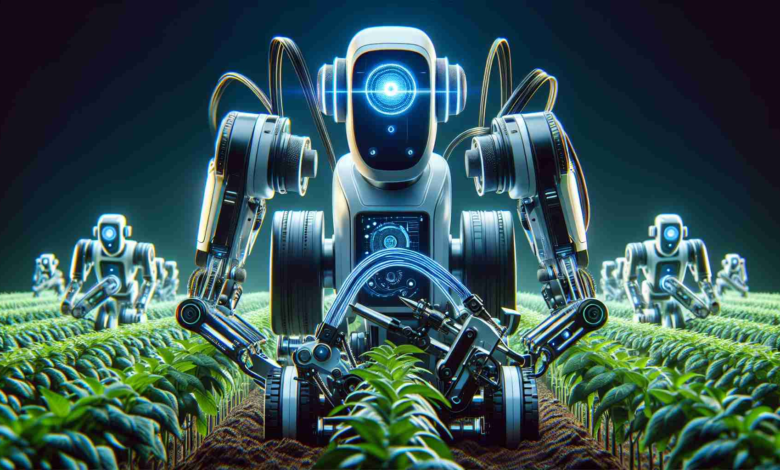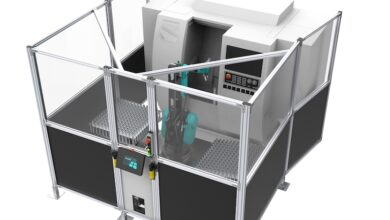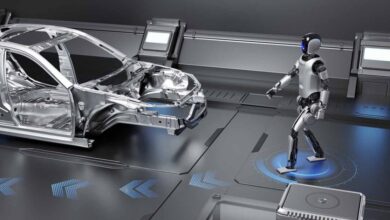Innovative Agricultural Robotics AI Co-Developed by Daedong and Seoul National University

Advancing AI in Agricultural and Industrial Robots
Daedong, a prominent agricultural platform company, has announced a strategic partnership with the Graduate School of Data Science at Seoul National University to accelerate the commercialization of artificial intelligence (AI). Together, they aim to co-develop AI for agricultural and industrial robotics.
The Graduate School of Data Science, established in 2020, focuses on creating global AI experts skilled in AI algorithms, big data, and computing. Daedong recently founded its affiliate, Daedong AI Lab, as part of its mission to integrate AI technology within its products and to spearhead the “AI Robot Transition” initiative.
Enhancing Simulation Technologies
Currently, Daedong AI Lab possesses advanced simulation technologies, enabling digital space simulations of outdoor tasks and robotics without incurring additional time and expense. This agreement constitutes a commitment from both institutions to collaborate on developing AI learning and application technologies through simulation.
Robots Adapting to Agriculture and Multitasking
The partnership is also dedicated to developing multifunctional robots capable of interpreting and executing complex commands within agricultural settings. These robots will function without a constant internet connection, thanks to on-device AI. An MLOps system is set to improve through the use of extensive task data for continuous robot performance enhancements.
Launching AI-Powered Autonomous Agricultural Robots
Daedong’s future plans include launching autonomous tractors and various agricultural robots designed for expert-level farmwork and orchard management. Within the year, they aim to introduce AI-powered transport and pest control robots, eventually working toward multifunctional agricultural robots that adapt to varying conditions by 2028.
Both entities anticipate the partnership to drive the AI robotics market through technological innovation, talent recruitment, and professional training collaborations. Daedong’s CEO expressed the company’s commitment to working with Seoul National University to yield groundbreaking technological advancements, product commercialization, and talent development in the AI robotics sector. The ultimate goal is to dominate the domestic robotics market, starting with agricultural AI robots, and to provide comprehensive Robot as a Service (RaaS) solutions in the long term.
Key Questions and Answers
Q: What are the main goals of the partnership between Daedong and Seoul National University?
A: The main goals are to accelerate the commercialization of AI in agricultural and industrial robots, develop multifunctional robots for agriculture, enhance simulation technologies for AI learning and application, and promote technological innovation, talent recruitment, and professional training in the AI robotics sector.
Q: What are the potential challenges associated with integrating AI into agricultural robots?
A: Challenges might include technical difficulties in creating AI algorithms that can handle complex and changing agricultural environments, ensuring robots can operate without constant internet connectivity, addressing data privacy and security concerns, and overcoming potential resistance from traditional farming communities.
Q: Are there any controversies related to the development of agricultural AI robots?
A: Potential controversies could involve the impact on employment within the agricultural sector, ethical considerations regarding autonomy and decision-making in robots, and the environmental impact of deploying robots on a large scale.
Advantages and Disadvantages of Agricultural AI Robots
Advantages:
– Increases efficiency and productivity in agricultural tasks.
– Reduces the need for manual labor, which can be beneficial in areas with labor shortages.
– Enables precision agriculture, leading to better crop management and reduced waste.
– Provides continuous operation, irrespective of weather conditions or time constraints.
– Contributes to the collection of extensive data that can be used for improving agricultural practices.
Disadvantages:
– Initial high costs for development and implementation may be prohibitive for small-scale farmers.
– Potential displacement of workers in the agricultural sector due to automation.
– Dependence on technology could lead to vulnerability in case of system failures or cyberattacks.
– Requires significant investment in R&D to create systems that can adapt to complex, unpredictable agricultural environments.
Related links to main domains that may provide more information on AI in agriculture and relevant stakeholders could include:
– Seoul National University
– Daedong
Please note that specific subpages have not been included, as requested, and these domains are provided as a starting point for further exploration on the topic of agricultural robotics AI.



